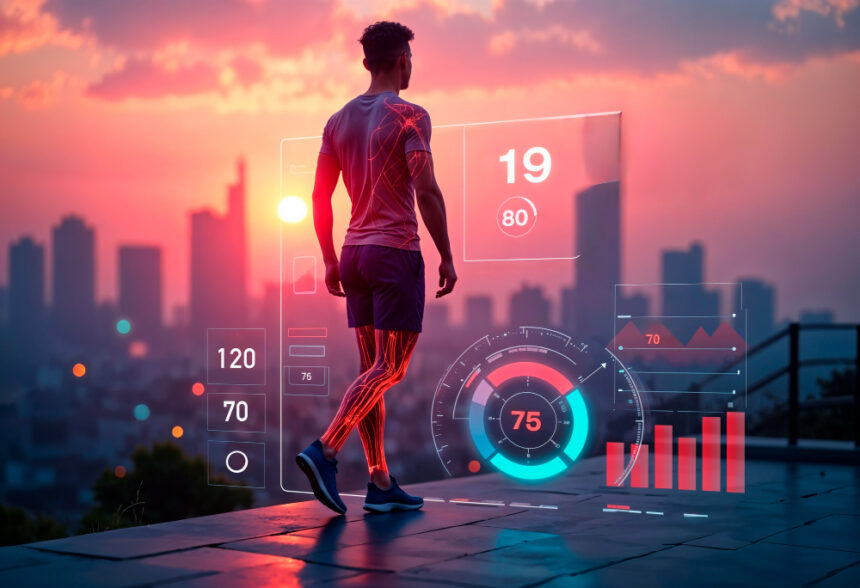Artificial intelligence is reshaping the sports industry in ways that were once thought impossible. Teams, coaches, and athletes are now leveraging AI to gain insights into performance, improve strategies, and enhance the overall fan experience. This technology is not just a tool but a game-changer that is redefining how sports are played, analyzed, and enjoyed by millions of fans around the world.
AI Transforming Sports Performance
The application of AI in sports performance has reached unprecedented levels. Athletes now have access to advanced data analytics that can monitor everything from heart rate and stamina to reaction time and injury risk. AI-powered wearables and tracking systems allow coaches to make real-time adjustments during training sessions, maximizing efficiency and reducing the likelihood of injuries.
Moreover, predictive modeling is helping teams identify potential weaknesses and strengths before they even step onto the field. By analyzing historical performance data, AI systems can forecast outcomes, helping coaches develop targeted strategies that improve their chances of winning. The integration of AI in performance analysis is not just a trend but a vital aspect of modern sports.
Revolutionizing Fan Engagement
AI is also transforming the way fans interact with their favorite sports. Personalized content, virtual reality experiences, and AI-driven highlights are making it easier than ever for fans to engage with their teams. Machine learning algorithms analyze fan preferences, allowing sports organizations to deliver content that resonates with individual audiences, creating deeper connections and enhancing loyalty.
Chatbots and virtual assistants powered by AI provide real-time updates, answer queries, and even simulate interactions with athletes. This level of engagement keeps fans invested, whether they are watching a live game, browsing social media, or exploring virtual fan zones. The AI-driven fan experience is elevating sports entertainment to a new level of personalization and immersion.
AI in Strategic Decision Making
Decision-making in sports has traditionally relied on intuition and experience, but AI is changing the game. Coaches and management teams are using AI systems to analyze vast amounts of data, from player performance to opponent tendencies, to make informed strategic decisions. This allows teams to optimize lineups, plan tactics, and respond swiftly to evolving situations during competitions.
For example, AI can simulate different game scenarios, providing insights into which strategies are likely to succeed under specific conditions. This predictive capability reduces uncertainty and helps teams make evidence-based decisions that enhance their competitive edge. In 2025, AI transforming sports is no longer optional; it is essential for staying ahead in a highly competitive environment.
Injury Prevention and Health Management
Athlete health and injury prevention have always been priorities in sports, but AI is taking these efforts to a new level. Machine learning models can predict the likelihood of injuries by analyzing biomechanical data, training intensity, and historical health records. This allows teams to implement preventative measures, adjust training loads, and ensure athletes are performing at their peak without unnecessary risk.
Wearable technology integrated with AI provides continuous monitoring, alerting coaches and medical staff to potential issues before they escalate. This proactive approach not only extends the careers of athletes but also improves team performance by maintaining a healthy roster. AI transforming sports in the area of health management is proving to be a game-changer in athlete longevity and well-being.
Enhancing Talent Scouting and Recruitment
Recruitment in sports is evolving thanks to AI-powered scouting tools. Traditional scouting methods often relied on subjective assessments and limited exposure, but AI algorithms can now analyze a vast pool of data to identify emerging talent. Performance metrics, game footage, and even social media activity are analyzed to assess potential, giving teams a competitive advantage in discovering and nurturing new athletes.
These AI systems provide objective insights, reducing bias and enabling teams to make data-driven decisions when recruiting players. By combining historical performance with predictive analytics, organizations can identify not only the best players currently available but also those likely to excel in the future. This has transformed the way talent pipelines are built and maintained.
AI-Driven Analytics and Game Insights
Data analytics has become a cornerstone of modern sports, and AI is at the forefront of this transformation. AI systems can process vast amounts of information, from player statistics to environmental conditions, to generate actionable insights. Coaches, analysts, and players can use this information to refine techniques, adjust strategies, and make informed decisions during competitions.
The ability to quickly analyze game footage, identify patterns, and recognize trends gives teams a significant competitive edge. AI transforming sports analytics ensures that no detail is overlooked, making preparation more precise and performance more consistent. This level of insight is invaluable in a world where margins of victory are often razor-thin.
The Future of AI in Sports
Looking ahead, AI transforming sports promises even more innovation. Emerging technologies such as augmented reality, virtual reality, and advanced simulation are being integrated with AI to create immersive training and fan experiences. Teams and athletes will continue to harness AI to improve performance, enhance engagement, and gain a strategic advantage over competitors.
As AI becomes more sophisticated, ethical considerations and data privacy will also play a crucial role. Sports organizations must balance technological advancement with responsible use, ensuring that AI benefits all stakeholders while maintaining trust. The future of AI in sports is not just about winning games but transforming the entire ecosystem of sports for athletes, fans, and organizations alike.











